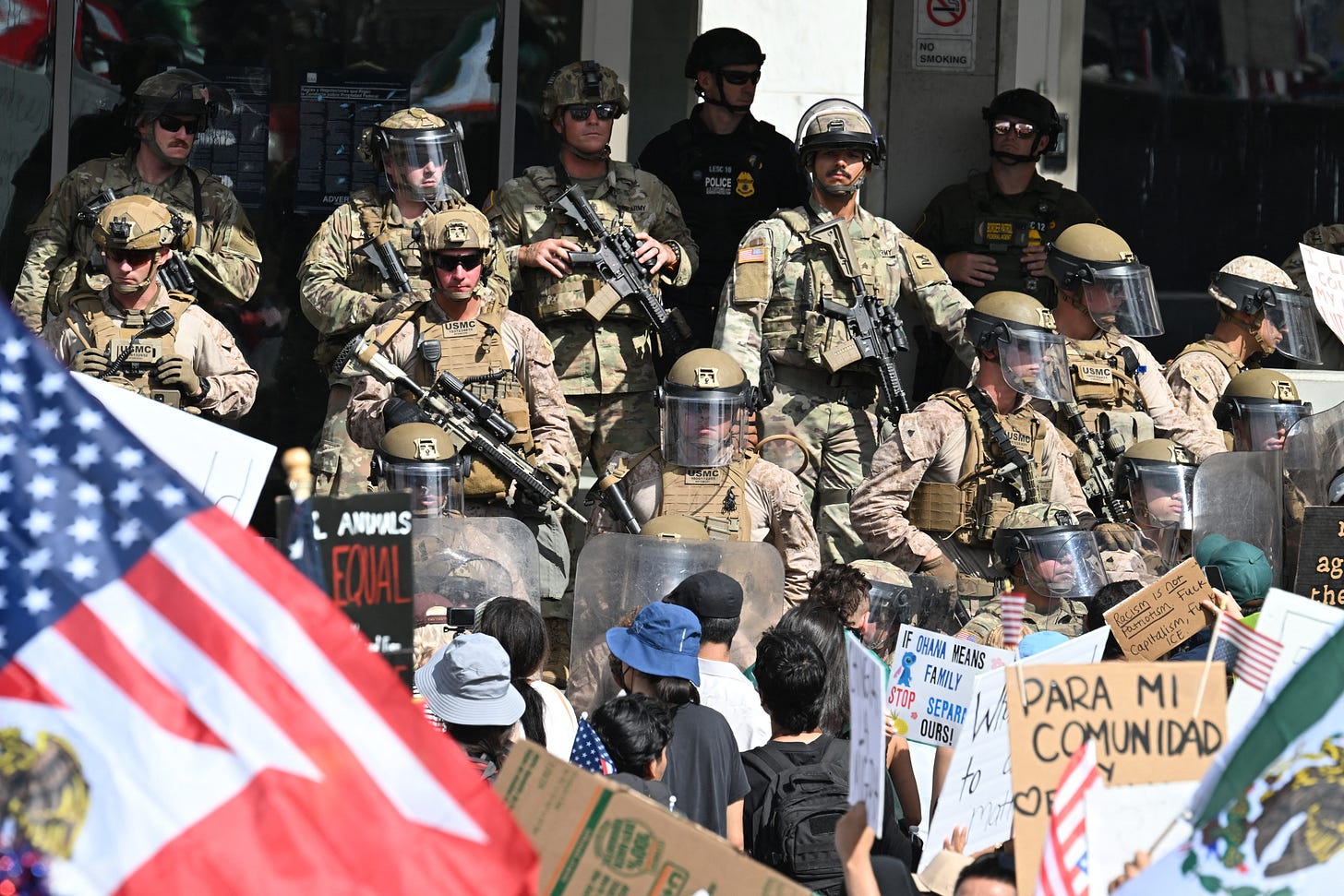Is Trump Breaking the Law in LA?
Constitutional law professor Kim Wehle examines and debunks the GOP’s dangerous claims that the president has the power to deploy troops in Los Angeles.

There’s a lot of misinformation swirling around Donald Trump’s invocation of 4,000 National Guard troops and 700 US Marines last week in California. Does he actually have the power to do what he’s doing?
It’s important to get this one right. The stakes are too high to just pick sides.
Some on the right have defended Trump’s action and pointed to the protest-related violence in LA as a reason for calling in the National Guard. According to conservative writer Heather Mac Donald in City Journal, the measure was necessary to “protect federal officers and property” as a result of “L.A.’s illegal-alien riots.”
California Governor Gavin Newsom, however, has sued the Trump administration, claiming that it violated several federal statutes and the Constitution itself by calling up National Guard and federal troops without Newsom’s knowledge or consent. And, on Thursday, a federal judge in California sided with the state, imposing an injunction that directed Trump to withdraw his control over the National Guard. The US Court of Appeals for the Ninth Circuit paused that order while it considers the matter on appeal, with a hearing scheduled for Tuesday.
So what does the law actually say about what Trump did in California?
Thursday’s 36-page opinion by US District Judge Charles Breyer (brother of retired Supreme Court Justice Stephen Breyer) is crucial here because it is based on sworn affidavits signed by people in the Trump administration, among others. This is where the courts come in handy. We don’t need to pick sides. The law and the facts are verified for us.
Three core questions are in play:
Does federal law allow presidents to do what Trump did in LA?
If a law that authorizes such extreme measures exists, was its use warranted on the ground in California?
What does the US Constitution have to say about all of this? (Let’s assume for the sake of argument that most Americans still believe that the Constitution remains the law of the land even under Trump.)




